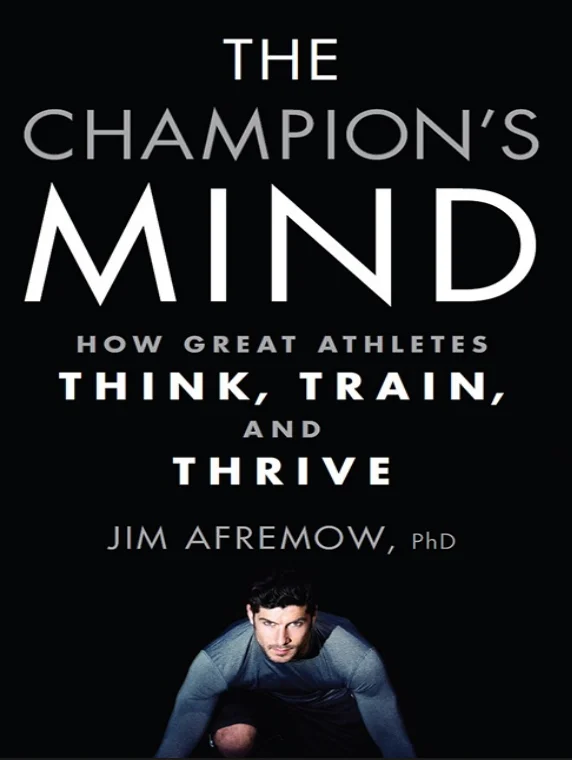
Champions don’t wait for confidence to show up, they build it through deliberate practice.
Every drill you perfect, every film session you study, every ounce of effort you give when no one is watching deposits into your mental toughness account. When the pressure is highest, you withdraw from that account.
The difference between choking and thriving isn’t talent; it’s the thousands of invisible repetitions where you trained your mind to stay present. Next time you’re in a clutch moment, don’t think about winning. Think about your breathing. Focus on your form.
Trust your training. The medal is just the confirmation of what you already earned in the dark.
The Champions Mind is a masterclass in the mental frameworks that separate elite performers from the rest. Written by renowned sports psychologist Dr. Jim Afremow, this book distills decades of work with Olympic athletes, professional sports teams, and business leaders into actionable principles for achieving excellence in any field. Unlike generic motivational books, Afremow provides science-backed mental training techniques used by world-class competitors to optimize performance under pressure.
1. The Process Over Outcome Mindset
Champions focus on controllables (effort, preparation) rather than uncontrollables (winning, rankings).
Case Study: Michael Phelps’ coach Bob Bowman trained him to “win the workout” long before Olympic races.
Practical Tool: The “1% Rule”—improving one aspect of your performance daily compounds into dominance.
2. Embracing Adversity
How top performers reframe obstacles as opportunities (e.g., Serena Williams using early career losses as fuel).
The “Challenge vs. Threat” Response: Physiologically, viewing stress as enhancing (not debilitating).
Exercise: Write down past setbacks and list how each made you stronger.
3. Rituals and Routines
Pre-performance rituals (like Novak Djokovic’s precise ball-bouncing) anchor focus and reduce anxiety.
The “20-Second Rule”: Reduce friction for good habits (e.g., laying out workout clothes the night before).
4. The Zone State
Science of flow states: Characteristics (time distortion, effortless focus) and how to trigger them.
The “4 Conditions for Flow”:
Clear goals
Immediate feedback
Balance of skill/challenge
Minimal distractions
5. Energy Management
Why recovery is strategic (Roger Federer’s 10-hour sleep routine).
The “Performance Pyramid”: Physical training (base), technical skills (middle), mental game (peak).